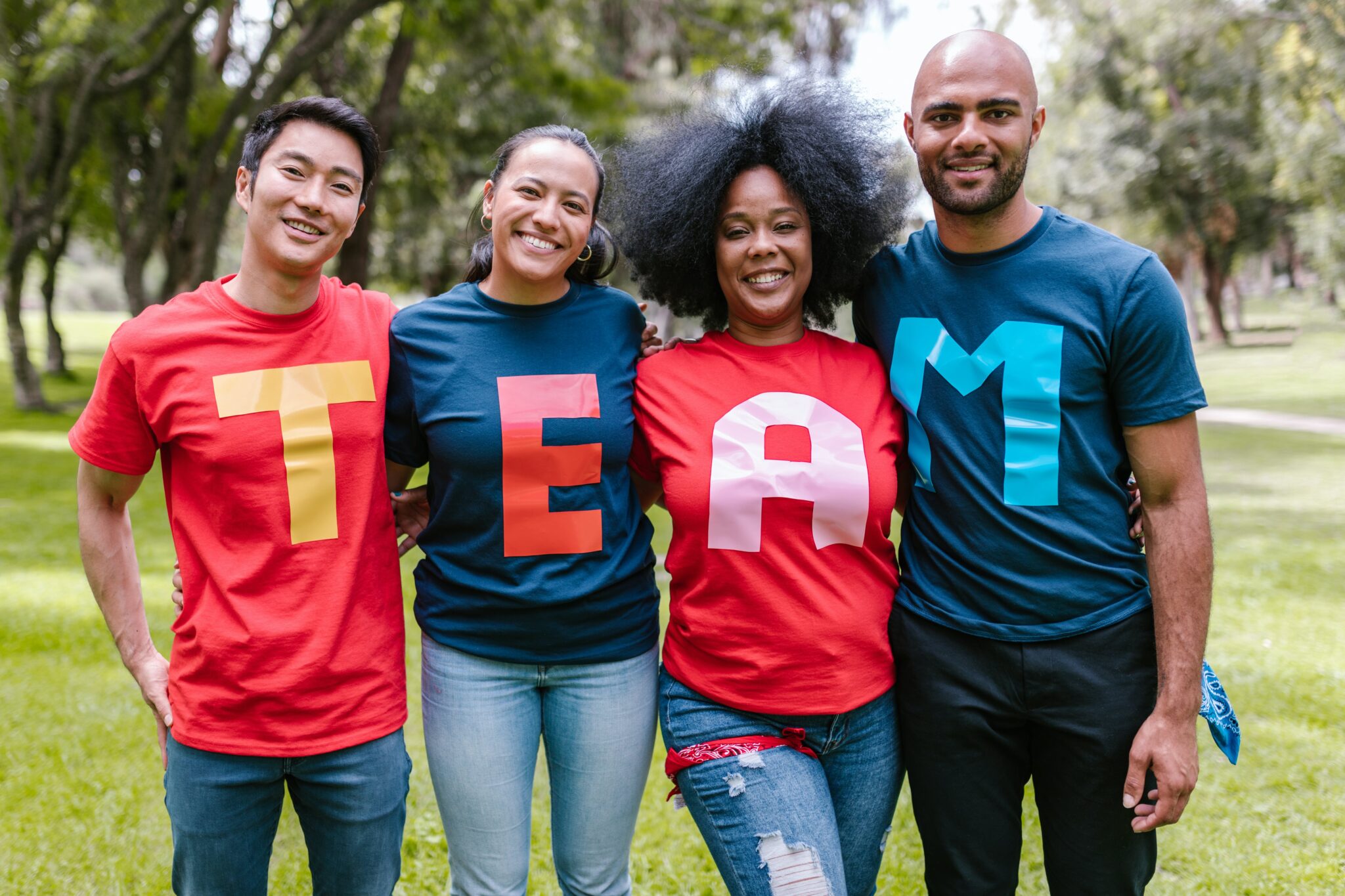Home > How do we empower the individuals in our teams to take responsibility for the building of positive cultures?
How do we empower the individuals in our teams to take responsibility for the building of positive cultures?
We know that culture is a key factor that drives employee engagement, levels of staff retention and overall satisfaction in the workplace. In the era of hybridity and quiet quitting, the development of a culture that prioritises connectedness and a sense of belonging for all employees has never been more important. This is magnified for our Graduate Employees, many of whom are still experiencing some of the consequences of the disconnectedness that was prevalent during the height of the COVID-19 pandemic.
There is no doubt that culture needs to be prioritised by all leaders in an organisation. Organisational values must be lived and deeply embedded, and opportunities for connectedness must be carved out within the annual program of any business. Despite this reality, it is also a potentially uncomfortable truth that individuals in most organisations see the development of culture and the building of a strong team as something which is ‘done’ to them, or is the consequence of actions taken by others who are higher in the chain of command.
In reality, culture is not inflicted upon us or provided to us. It is a way of being and acting that, when embodied by many people in the same organisation at the same time, has the capacity to profoundly shape the way people view their experience at work.
So how can leaders act as role models in this regard? How can they empower individuals to act as powerful cultural agents who embody the values of their organisations and show initiative to proactively shape and unite their teams?
1. Ensure members of each team are aware of how their individual role interconnects with the wider vision, mission and values of the team
Spend time with your team discussing your mission, your vision and your reason for being. When your ‘reason for being’ is articulated and shared, and this sense of purpose is mirrored in the values espoused by team members, people experience greater intention in their actions. This serves to provide an anchor during times of challenge. A clear sense of vision allows your team to view future their actions through the lens of the group’s vision and mission, thereby driving alignment and cohesiveness. Be prepared to take the time to revisit these values and your vision regularly and be open to suggestions from your team for tweaks and changes as time goes on. This is a healthy sign of growth, development and individual empowerment – and a reflection of a healthy working environment.
2. Role model the prioritisation of knowing each individual and learning about how their strengths can contribute to a greater whole
How well do you really know the individuals in your team? Have you prioritised learning about the background, interests, experiences and driving forces of these individuals? Building opportunities to take an authentic interest in each person can yield enormous benefits; not only as a consequence of the heightened motivation a person feels when they are ‘seen’, but also in terms of your improved sense of how best to use individual strengths and interests for the betterment of the group as a whole. It is equally as valuable for individuals to ‘see’ you as a whole person and not just the role you perform with this group. Rather than seeing getting to know one another as a distraction that takes away from the work to be done, role modelling this approach as a leader allows team members to recognise the value in learning about one another and in their respective strengths.
3. Create a culture that is open to feedback and different perspectives
It can sometimes be challenging and confronting to receive feedback. As a leader, your first instinct may lean towards a resistance to feedback and to a minimisation of opportunities for people to provide this feedback. New leaders, in particular, may worry that any negative feedback is a reflection of the success of their leadership. The reality is that normalising feedback, and the constructive delivery of it, is essential for the success of any team. The strength of a leader lies in their capacity for openness to feedback and their modelling of the receiving of it with discernment and appreciation. Creating regular opportunities for open evaluation of practices allows those in groups around you to feel an authentic sense of agency and, as individuals, to be open to the receiving of feedback themselves.
4. Be a role model for energetic, enthusiastic and joyous interactions
We all know that energy is infectious. The energy you bring to your roles in teams has a significant effect on environment and on the well-being of your team as a whole. At Be Challenged, one of our core values is to ‘be playful’. We deliberately prioritise this value because we recognise that playfulness drives joy and happiness, with the delightful by-product of increased creativity and synergy. When they are given the freedom to think differently, tangentially and laterally for a short period of time, people can reboot and reset their thinking. Normalising the utilisation of brief, energising, brain breaks and fun gives permission for individuals in your team to do the same and to feel invigorated as a result.
5. Be prepared to delegate and to recognise the capacity for growth of the members of your team
Experienced leaders know the challenges, as well as the benefits, of learning the skill of delegation. Delegating effectively can be one of the most challenging skills to learn, but the benefits to a leader and to individuals in a group are significant. Just as teachers are aware of the benefits of challenging their students to move to new levels of understanding and performance, so too it is our responsibility to allow team members in other contexts to be challenged and to demonstrate their capabilities. Consider whether your fears are resulting in the controlling of too many elements around you. Is there the chance that this feels stifling for those young people who work alongside you? Delegating to others lifts their sense of self-efficacy and builds trust in the workplace.
6. Take time out to prioritise the celebration of ‘wins’
In our society, we have ritualised this acknowledgement of students in schools in many ways, from merit awards to Speech Nights. Sadly, as adults, we can forget the impact and significance of pausing to recognise the successes of our team members. The relentlessness of routine, and the perpetual challenges it throws at us, can seem overwhelming unless this cycle is punctuated by acknowledgements of success. You might like to consider scheduling the sending of an email or the writing of a note each Friday afternoon, acknowledging someone’s commendable actions? A small action showing that an individual has been seen and acknowledged has a large and lasting impact on an individual. Role modelling this behaviour, while empowering individuals to think of celebratory team rituals to celebrate success leads to a culture where ego is parked at the door and where people look for the chance to champion others.
7. Prioritise personal growth and learning
Taking time to read and learn about different ways of thinking, theories, ideas and concepts is a powerful way that you can prioritise your well-being and the well-being of others. Focussing on team dynamics with the goal of building cohesiveness, driving belonging and modelling personal growth is an important means through which you can build individual and team capacity and synergy moving forward. Opportunities for professional learning which is based on peer observation, or the sharing of knowledge amongst individual team members not only builds the overall capability of the team, it normalises learning, growth and the value of curiosity.
In essence, culture is not something we inherit or something which is dictated to us by organisational strategists. It must continually be prioritised and is the responsibility of all members of a team. Leaders have the capacity to model the prioritisation of behaviours which may not immediately look as though they play a part in relation to the bottom line, but in reality are crucial to health of organisational culture, and therefore the well-being and productivity of each person in a team.
Lisa Kelliher
Head of People and Culture, Be Challenged





